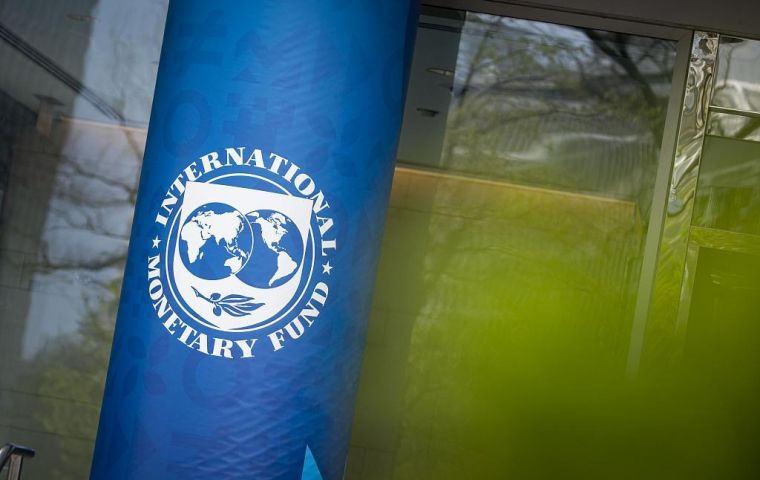MercoPress. South Atlantic News Agency
IMF revises Argentina's projected growth upwards
 The IMF slightly upgraded its 2022 growth forecast for Latin America and the Caribbean to 2.5%.
The IMF slightly upgraded its 2022 growth forecast for Latin America and the Caribbean to 2.5%. The International Monetary Fund (IMF) has raised its projections for Argentina's growth during 2022 to 4%, it was reported Tuesday in Washington DC. These figures show an improvement from those released just days ago by other agencies such as the World Bank (3.6%).
The global financial agency also estimated Argentina's economy would grow 3% in 2023, while it also lowered global projections due to the war between Russia and Ukraine.
Tuesday's announcements came during the presentation of the World Economic Outlook and were made by Pierre-Olivier Gourinchas, the IMF's new chief economist, from the University of Berkeley, who succeeded Gita Gopinath.
The IMF slightly upgraded its 2022 growth forecast for Latin America and the Caribbean to 2.5%.
Regarding Argentina's inflation, one of the highest in the world, the Fund projected it would reach 48%. However, IMF chief Kristalina Georgieva warned this figure needed to be “recalibrated” after recent inflationary pressure amid a growing global crisis.
The IMF also forecast Argentina's unemployment rate will be around 9.2% in 2022.
Globally, “beyond the immediate humanitarian impacts, the war will severely delay global recovery, slowing growth and further increasing inflation,” the IMF warned.
“This report projects global growth of 3.6% in 2022 and 2023: 0.8 and 0.2 percentage points lower than in the January forecast, respectively. the downgrade largely reflects the direct impacts of the war in Russia and Ukraine and global spillovers,” Gourinchas said during the press conference.
According to the Fund's chief economist, “the global economic outlook has been seriously affected, largely due to the invasion of Ukraine.”
The Fund warned that this crisis is unfolding even as the global economy has yet to fully recover from the coronavirus pandemic. “Even before the war, inflation in many countries had been rising due to supply-demand imbalances and policy support during the pandemic, which led to a tightening of monetary policy,” the IMF also pointed out.
It also considered that the latest confinements in China could cause new bottlenecks in global supply chains. In this scenario, the European Union's growth prospects for this year were revised downwards by 1.1 percentage points.
Inflation is also projected to remain high “for much longer than in our previous forecast, both in advanced and emerging market and developing economies and, in many countries, inflation has become a central concern,” the IMF report noted.
The agency also foresaw Colombia's economy would top the region regarding growth, which will expand by 5.8%, according to the latest projections.




Top Comments
Disclaimer & comment rulesCommenting for this story is now closed.
If you have a Facebook account, become a fan and comment on our Facebook Page!